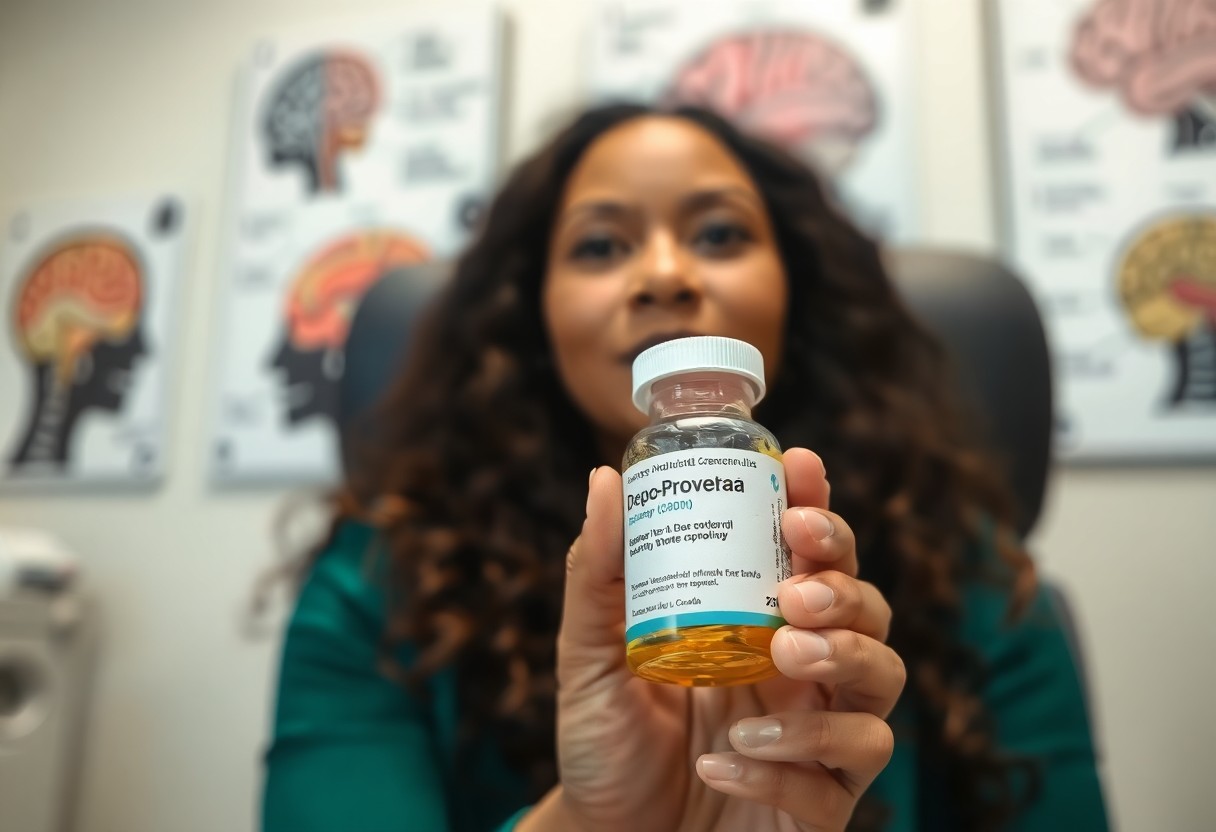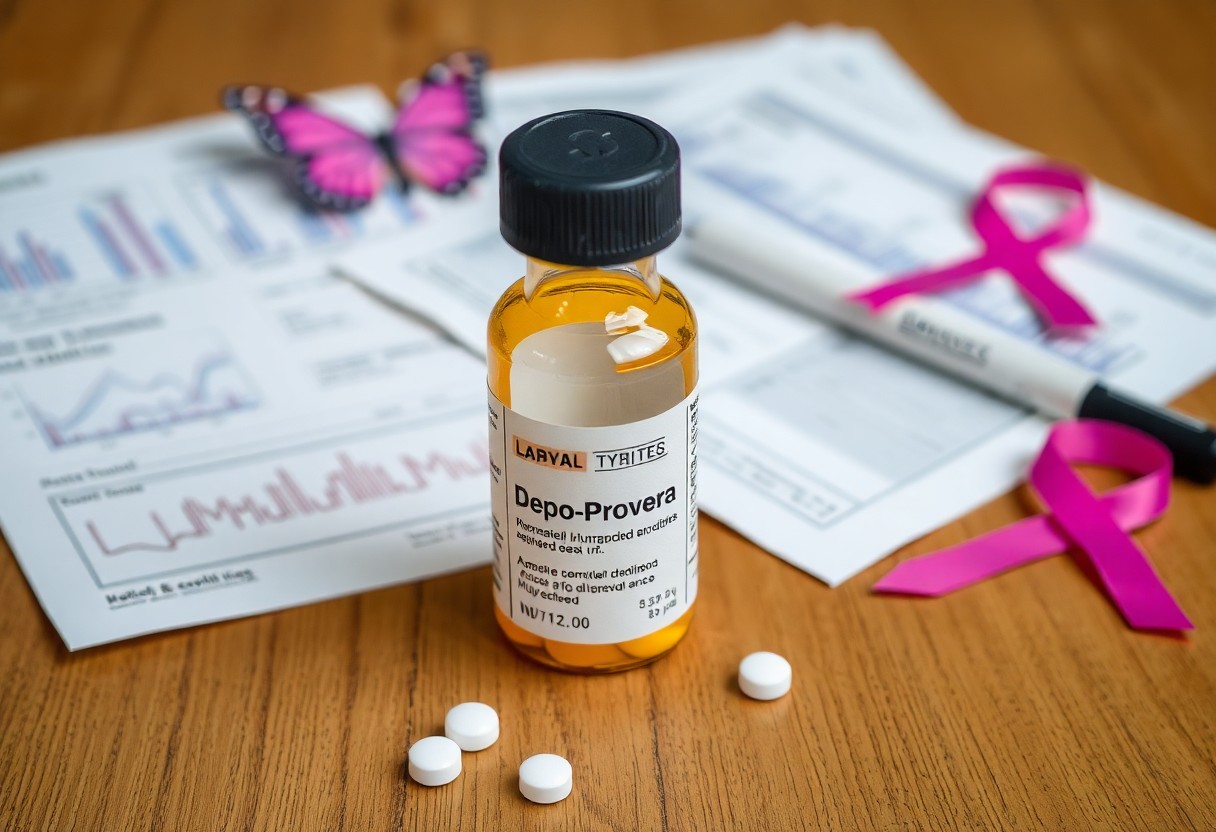With growing concerns about the potential risks associated with Depo-Provera, you may be wondering what healthcare professionals are saying about its connection to brain tumors. This contraceptive has been a reliable choice for many, but recent discussions in the medical community have raised important questions. It’s crucial for you to stay informed about the latest findings and expert opinions, as they can impact your health decisions. In this post, we will explore key insights from doctors regarding the safety of Depo-Provera and its potential implications for your well-being.
Understanding Depo-Provera
Before stepping into the implications of Depo-Provera on health, it’s important to comprehend what this contraceptive method entails. Depo-Provera is a hormonal injection designed to prevent pregnancy, typically administered every three months, providing a convenient solution for individuals seeking long-term birth control without daily pills.
What is Depo-Provera?
Before beginning any contraceptive method, it’s vital to understand its specifics. Depo-Provera is an injectable form of birth control that contains the hormone medroxyprogesterone acetate. This injection is effective in preventing ovulation and thickening cervical mucus, making it a reliable option for many women looking to avoid pregnancy.
How Does Depo-Provera Work?
About its mechanism, Depo-Provera operates by releasing the hormone medroxyprogesterone acetate into your bloodstream, which alters your body’s hormonal balance. This change effectively prevents ovulation, meaning your ovaries do not release eggs. Additionally, it thickens cervical mucus, which helps block sperm from reaching any eggs that may have been released.
Another significant aspect of how Depo-Provera works is its influence on the menstrual cycle. By administering this hormonal injection, you may experience lighter periods or even cessation of menstrual bleeding entirely. However, it’s important to be aware of potential side effects, which can include bone density loss and weight gain, among others, as these can impact your overall health.

Investigating Brain Tumors
The investigation of brain tumors involves advanced imaging techniques and thorough diagnostic procedures. Your healthcare provider may use tools such as MRI and CT scans to identify abnormal growths and determine their nature. This careful examination is necessary for establishing an effective treatment plan.
Types of Brain Tumors
- Primary Brain Tumors originate in the brain.
- Secondary Brain Tumors spread from other body parts.
- Benign Tumors are non-cancerous and typically do not spread.
- Malignant Tumors are cancerous and can invade surrounding tissues.
- Gliomas are among the most common types of brain tumors.
This classification helps in understanding the nature and behavior of the tumors.
| Type | Description |
| Primary | Originates in the brain |
| Secondary | Spread from other areas |
| Benign | Non-cancerous growths |
| Malignant | Cancerous and aggressive |
| Gliomas | Commonly occurring tumors |
Risk Factors Associated with Brain Tumors
Tumors can develop due to various risk factors that you should be aware of. These can include genetic predisposition, exposure to certain chemicals, and a history of radiation therapy. Your awareness of these factors can aid in early detection and intervention.
- Genetic Factors can increase susceptibility.
- Environmental Exposures may raise risk levels.
- Radiation Exposure is a known contributing factor.
- Previous Cancer Treatment may lead to subsequent tumors.
- Family History plays a significant role.
Thou should consider discussing any concerns with your medical provider to evaluate your personal risk profile.
Investigating your individual risk factors is necessary for maintaining neurological health. Stay informed about genetic predispositions, environmental exposures, and previous cancer treatments that could impact your health. Being proactive about these aspects can assist in better outcomes for brain tumor detection and treatment. Thou should prioritize regular check-ups and open conversations with healthcare professionals.
Current Research on Depo-Provera and Brain Tumors
Clearly, the relationship between Depo-Provera and brain tumors has garnered significant interest in the medical community. Ongoing research aims to unravel the connections between hormonal contraceptives like Depo-Provera and potential neurological impacts. Such studies are vital for understanding the risks you may face when considering this form of birth control and help ensure your reproductive health is monitored effectively.
Overview of Studies Conducted
Across various studies, researchers have explored the potential associations between Depo-Provera and the incidence of brain tumors. Some investigations utilized large data sets to analyze health outcomes, while others focused on specific populations. These efforts seek to establish whether hormonal contraceptives increase your risk of developing certain types of tumors.
Findings and Implications
Before jumping to conclusions, it is imperative to review the findings of these studies critically. Many findings suggest that while there is some correlation between hormonal contraceptives and brain tumors, the overall risk remains low. You should understand that individual factors like genetic predispositions may play a larger role in your risk profile than Depo-Provera use itself.
Understanding the implications of these findings is critical for your decision-making process. Though some research indicates a potential link between ever-use of Depo-Provera and a slight increase in brain tumor risk, the absolute risk is still very low. Monitoring your health while using any hormonal contraceptive and discussing personal risk factors with your healthcare provider is imperative. Importantly, weighing the benefits against the associated risks can help you make informed choices about your reproductive health.
Medical Expert Opinions
To understand the implications of Depo-Provera on health, medical experts emphasize the importance of individualized assessments. Many healthcare professionals advocate for weighing the benefits of contraception against potential health risks, ensuring you receive targeted information based on your unique medical history and circumstances.
On Safety of Depo-Provera
Across various studies, health professionals generally view Depo-Provera as a safe contraceptive option. With millions of women using it, the method is praised for its effectiveness in preventing pregnancy. However, some experts caution you to consider the potential side effects, particularly regarding bone density and weight gain.
On The Correlation with Brain Tumors
About the relationship between Depo-Provera and brain tumors, medical advice remains cautious but not definitive. While some research suggests a possible link, many professionals argue that the data is inconclusive and more studies are needed to clarify any real association.
Further investigating this correlation is important for your peace of mind. Some studies have indicated a slight increase in the risk of certain types of brain tumors among women using hormonal contraceptives like Depo-Provera. However, other research has found no significant connection. You should remain informed and discuss any concerns with your healthcare provider, as they can help you weigh the risks and benefits according to your specific health profile.
Patient Testimonials and Experiences
Now, many individuals who have used Depo-Provera share their stories, shedding light on their experiences and concerns. These testimonials often highlight both the positive aspects of the contraceptive, such as its effectiveness in preventing pregnancy, and the troubling side effects that some claim to have experienced. As you navigate your own healthcare decisions, it can be beneficial to consider these lived experiences alongside medical advice.
Personal Reports
Reports from users vary significantly; some praise Depo-Provera for its convenience and reliability, while others express feelings of anxiety linked to health risks, including those related to brain tumors. It’s important for you to weigh these accounts with your healthcare provider’s guidance to make an informed choice that aligns with your health needs.
Community Perspectives
About many forums and social media groups, you will find a rich tapestry of community perspectives regarding the use of Depo-Provera. Users discuss personal experiences, sharing not only their worries but also support for one another as they address the implications of their contraceptive choices.
A wide range of voices contribute to these discussions, allowing you to explore various viewpoints. Some emphasize the importance of ongoing research into potential side effects, including allegations linking Depo-Provera to brain tumors. Others caution against jumping to conclusions based solely on anecdotes, advocating for a balanced interpretation of empirical evidence. As you engage with these narratives, take the time to reflect on how they might influence your understanding and decisions regarding your health and contraceptive methods.
Alternatives to Depo-Provera
For those considering alternatives to Depo-Provera, it’s important to explore a range of contraceptive methods that may suit your lifestyle and health needs better. Options such as oral contraceptives, IUDs, implants, condoms, and fertility awareness methods can provide effective birth control while allowing you to avoid some of the potential risks associated with Depo-Provera.
Other Contraceptive Options
One option you may want to consider is the use of oral contraceptives, which provide flexibility and allow you to regulate your menstrual cycle while offering effective pregnancy prevention. Other methods like IUDs or implants can provide long-term contraception without daily management.
Considerations for Patients
One of the key considerations when exploring alternatives is your individual health profile and lifestyle. It’s important to discuss with your healthcare provider any preexisting conditions or personal concerns that may influence your choice of contraception.
Other factors to weigh include the effectiveness of each method, potential side effects, and how well the method fits into your daily routine. For example, hormonal options may carry similar risks to Depo-Provera, whereas non-hormonal methods might be appealing if you’re cautious about hormonal influences. Understanding these details and tailoring a choice to fit your needs can empower you in your contraceptive journey.
Conclusion
To wrap up, it’s necessary to understand that while the topic of Depo-Provera and its potential link to brain tumors has been a subject of research, current evidence remains inconclusive. You should discuss any concerns with your healthcare provider, who can help you weigh the risks and benefits based on your individual health profile. Staying informed and proactive in your health decisions will empower you to make the best choices for your body.

















